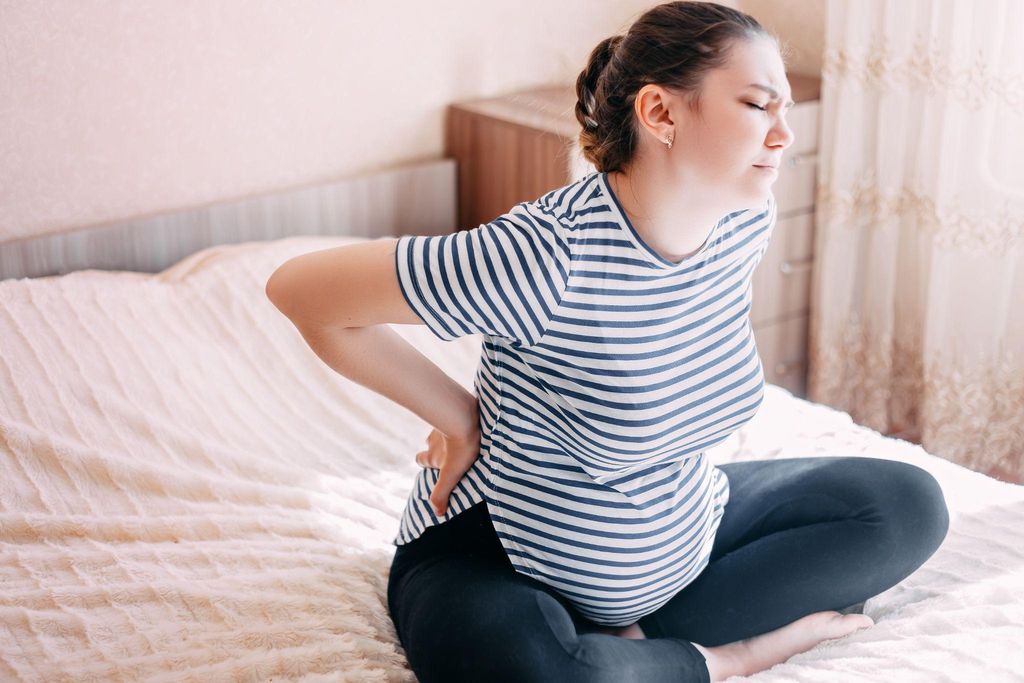Lower back pain is one of the most common discomforts experienced during pregnancy. As exciting as it is to watch your bump grow, the physical changes your body undergoes can put added strain on your back. While this is a normal part of pregnancy, it’s not something you have to simply endure. Understanding what causes lower back pain and exploring safe, effective relief options can make your journey much more comfortable.
What Causes Lower Back Pain During Pregnancy?
Your body is doing a lot of hard work to support your growing baby, and these changes can lead to lower back pain. Here are some of the most common causes:
Hormonal Changes
During pregnancy, your body produces relaxin, a hormone that loosens ligaments and joints to prepare for childbirth. While this is essential for delivery, it can also make your spine and back more vulnerable to strain.
Weight Gain
As your baby grows, so does the weight your back needs to support. This added weight shifts your centre of gravity forward, putting extra pressure on your lower back.
Posture Changes
With your growing bump, it’s natural to adjust how you stand, sit, and move. These posture changes can sometimes lead to back pain, especially if you’re not mindful of your alignment.
Muscle Separation
The abdominal muscles stretch to accommodate your baby, which can weaken your core and force your back muscles to work harder, resulting in discomfort.
Stress
Pregnancy can be a beautiful time, but it’s also normal to feel some stress. Stress can lead to muscle tension, particularly in the back.
Is Lower Back Pain During Pregnancy Normal?
Yes, experiencing some lower back pain during pregnancy is very common. However, it’s important to keep an eye on the severity and duration of the pain. Mild to moderate discomfort that improves with rest or home remedies is usually nothing to worry about. If the pain is severe, persistent, or accompanied by other symptoms like fever or bleeding, consult your healthcare provider immediately.
Safe Relief Options for Lower Back Pain
The good news is that there are plenty of safe and effective ways to manage lower back pain during pregnancy. Here are some tried-and-tested options:
Stay Active with Gentle Exercises
Low-impact activities can strengthen your back and improve flexibility. Antenatal yoga is particularly beneficial, as it combines gentle stretches with mindfulness and breathing exercises. Search for pregnancy yoga classes or online tutorials designed for expecting mums. Walking and swimming are also excellent choices.
Try Antenatal Massage
A soothing prenatal massage can work wonders for tense muscles and improve circulation. Look for a therapist trained in massage for pregnancy to ensure the techniques are safe and tailored to your needs. Regular massages can also help with relaxation during pregnancy.
Use Heat and Cold Therapy
Applying a warm compress to your lower back can relax muscles and ease pain. Alternatively, a cold pack can reduce swelling or inflammation. Be sure to avoid applying extreme temperatures directly to your skin.
Invest in Supportive Gear
Maternity Belts: These provide extra support for your abdomen and back, helping to relieve pressure on your lower back.
Pregnancy Pillows: These can help you maintain a comfortable sleeping position, reducing strain on your back and hips.
Maintain Good Posture
Being mindful of your posture can go a long way in preventing back pain. Here are a few tips:
Stand tall with your shoulders back and relaxed.
Avoid locking your knees when standing.
Sit with your back supported and your feet flat on the floor.
Focus on Nutrition and Hydration
Eating a well-balanced diet and staying hydrated can support overall muscle health. Include calcium, magnesium, and potassium in your meals, and take your prescribed antenatal vitamins to ensure you’re getting all the nutrients you and your baby need.
Explore Gentle Stretches
Incorporate stretches designed for pregnancy into your daily routine. Child’s Pose and Cat-Cow stretches are great for relieving back tension and can be included in your antenatal yoga practice.
When to Seek Medical Advice
While lower back pain during pregnancy is usually normal, certain symptoms may signal a need for medical attention. Contact your healthcare provider or visit an antenatal clinic if:
The pain is severe or doesn’t improve with rest.
You experience pain along with fever, bleeding, or vaginal discharge.
There is numbness or tingling in your legs.
The pain makes it difficult to perform daily activities.
Regular antenatal checkups are essential for monitoring your pregnancy and addressing any concerns you may have.
Emotional Support and Antenatal Education
Pregnancy is as much a mental journey as a physical one, and managing stress is key to reducing muscle tension. Consider these options:
Antenatal Classes: Search for antenatal classes near me to learn about managing pregnancy symptoms, including lower back pain, and preparing for labour.
Relaxation Techniques: Mindfulness, meditation, and deep breathing exercises can help ease both mental and physical tension.
FAQs About Lower Back Pain During Pregnancy
Q: Is it normal to have lower back pain in early pregnancy?
A: Yes, mild lower back pain in early pregnancy is common due to hormonal changes and your body adjusting to the pregnancy.
Q: Can exercise worsen back pain?
A: Not if you stick to low-impact activities like prenatal yoga or walking. Always consult your doctor before starting a new exercise routine.
Q: How can I sleep comfortably with back pain?
A: Use a pregnancy pillow for support and sleep on your side with a pillow between your knees to keep your spine aligned.
Q: Are massages safe during pregnancy?
A: Yes, antenatal massage is safe when performed by a certified therapist and can provide significant relief from back pain.
Lower back pain during pregnancy is a common but manageable issue. By incorporating safe practices like antenatal yoga, prenatal massage, and proper nutrition, you can significantly reduce discomfort and enjoy a more comfortable pregnancy. Regular antenatal care, including checkups, ensures that any concerns are addressed promptly, giving you peace of mind as you prepare to meet your little one. Remember, your healthcare team is here to support you every step of the way.
Sources
NHS: Managing Pregnancy Discomforts
Mayo Clinic: Pregnancy Pain Relief
American Pregnancy Association: Back Pain During Pregnancy
Royal College of Obstetricians and Gynaecologists: Pregnancy and Back Pain
Cleveland Clinic: Pregnancy Pain Management
References
- The Ultimate Antenatal Classes
Prepare for labour, birth, and baby care with nine experts, including senior NHS midwives and an award-winning obstetrician!
https://unii.com/en/journey/ultimate-antenatal-classes









